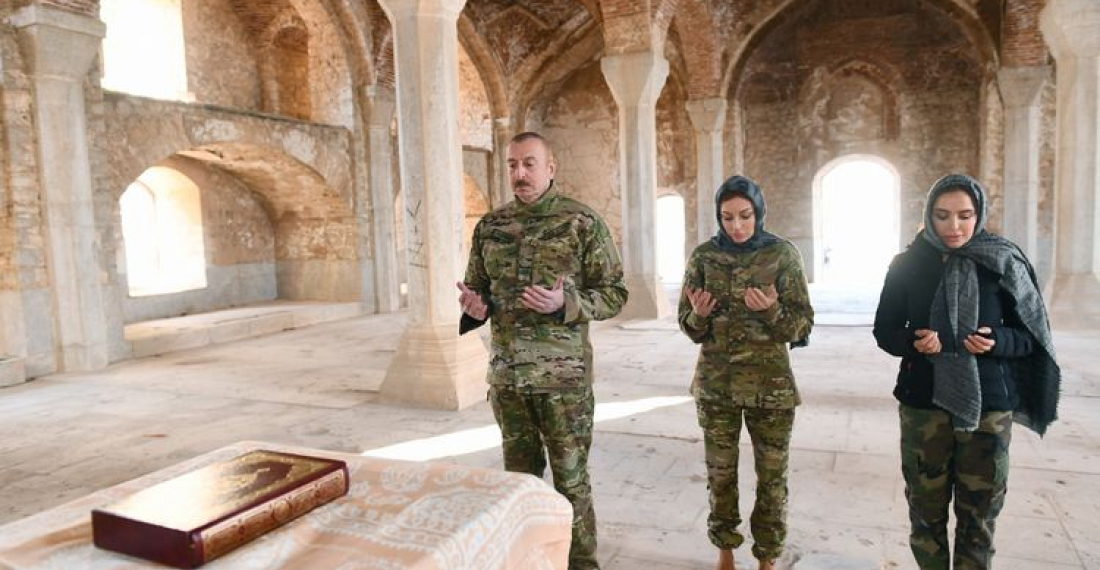Azerbaijan president Ilham Aliyev, accompanied by his wife and daughter, on Friday travelled to the historic town of Shusha in Nagorno-Karabakh, which was retaken by Azerbaijani forces during the 44 day war in the autumn.
During the visit the president laid the foundation of an international airport in the Fizuli region. The airport, will have a 2,800 meters runway and will be equipped with infrastructure in accordance with international standards.
Speaking at the ceremony president Aliyev said, "this is a very important project for the development of our liberated regions. Fuzuli International Airport is to be commissioned this year. In any case, the runway should be commissioned this year. The airport building may be commissioned this year or next year. The main purpose of this airport is to ensure the arrival of foreign guests to Shusha, because the distance from here to Shusha is not so great. Taking into account that the foundation of a new four-lane and in some places six-lane Fizuli-Shusha highway has been laid today, foreign guests will be able to get to Fizuli International Airport and get to Shusha in a very comfortable and short time."
"Shusha was declared the cultural capital of Azerbaijan by me. Work has begun to restore the city of Shusha and restore its historical image. In general, only two months have passed since the war, but great construction work has begun. A second international airport will be built in our liberated lands in the Kalbajar or Lachin regions. The site is now being selected, and the construction of two international airports must be completed in the near future."
"The great return begins, all work has begun. I am sure that just as we drove the enemy out of our lands in a short period of time - in just 44 days - we will soon restore our historical ancestral land of Karabakh", president Aliyev said.
commonspace.eu political editor said in a comment that Azerbaijan is determined to turn Shusha into a symbol of its victory and success. "The town has always been of significance in Azerbaijani culture, and its occupation by Armenians in 1992 determined the fate of Karabakh and sealed the Azerbaijani defeat. Now fortunes have been reversed, and Shusha is back under Azerbaijani control, and Baku can show that it already controls part of Karabakh, although about 80% of that territory is still under Armenian control, and now, under Russian protection. Azerbaijan faces a big challenge in restoring the territories it has retaken, most of which had been left delipidated for nearly three decades. There is first the task of cleaning the territories from land mines and other unexploded ordinance. Then laying down the infrastructure, such as roads and airports, and of course houses to enable the hundreds of thousands of people displaced in the 1990s and their families, to return. It is a huge task which president Aliyev appears to be cherishing. 'The great return' will dominate his agenda for the years to come".







